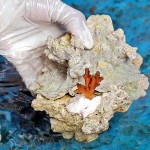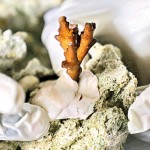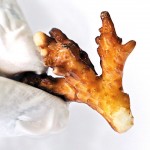News
Coral restoration project grows species outside marine habitat
View(s):By Kasun Warakapitiya
Urgent moves are underway to preserve Sri Lanka’s coral reefs, which are facing the dual threats of climate change and pollution.
The National Zoological Gardens Department and a researcher from the Ocean University of Sri Lanka have initiated an ex-situ coral restoration project—a technique for the conservation of biological diversity outside their natural habitats.
Captive breeding centres, aquariums, botanical and zoological gardens, and gene banks are some of the institutes that have adopted this technique.
- Nalinda Jayalath
- Chathushka Nadeniya
- Conditioned replanted coral fragments in captive condition
- Coral fragment collected near shore Pix by M A Pushpa Kumara
- Newly planted coral fragments ex situ restoration
- Replanting coral fragments using specific putty
The National Zoological Gardens Department’s Deputy Director, Dinushika Manawadu, told the Sunday Times that the pilot project had shown promise, and so they had planned to revive Sri Lanka’s coral reefs by introducing the corals restored and grown through the project under captive conditions.
She added that with the success of the project, they hoped to create insurance colonies for endangered coral species.
Chathushka Nadeniya, an Ocean University graduate of the faculty of fisheries and ocean science, said he was researching coral restoration while studying for a Master of Science (M.Sc.) degree.
He explained that he came up with the idea of preserving broken and damaged corals that wash up on the beaches by growing them in captive conditions. He had obtained permission from the university to work as an intern at the Dehiwala Zoo to do research. He is also involved with other research at the zoo.
Mr. Nadeniya said that with the support of the zoo’s staff, fragmented and broken-off live coral shards were collected from the shores of Paravi Wella at Tangalle and transported in seawater containers under controlled conditions (in ice boxes).
Later, the coral shards were attached to live coral on mediums such as coral rubble, terracotta blocks and cement blocks, which have been conditioned underwater at the zoo’s aquarium laboratory.
He added that coral species such as Acropora, Pocillopora and Montipora are restored by using a special coral glue and putty.
“We submerge the medium in seawater, so the beneficial bacterial growth occurs before the coral shards are fixed,’’ he said.
The Sunday Times observed that the pilot project uses makeshift equipment and facilities to artificially recreate conditions for coral growth.
Mr. Nadeniya said it was difficult for them to control the water temperature and maintain water quality, as well as keep the rainwater from mixing with containers that housed the corals.
“We can increase the success rate if we are provided with facilities to control the conditions needed to grow corals,” he said.
A handmade canister filter is used to break down the nitrates in the water. Chemicals are used to maintain water parameters (chemical, physical, and biological properties), essential elements such as calcium and magnesium, and other supplements are provided for growth.
He said they fed artificial coral feed to promote healthy growth.
“Corals are sensitive; they need unpolluted seawater, and the water we take from Dehiwala contains pollutants. Therefore, chemicals and biological methods need to be used to treat the water,” he said.
He said that many people told him sophisticated equipment was needed for restoration as sensitive corals need seawater and an environment where the sunlight and temperature are controlled.
However, they managed to restore corals with makeshift equipment. A wavemaker, an aerator, a canister filter, and a biofilter made by planting a mangrove plant are being used.
He said that with the support of the Dehiwala Zoo aquarium and reptilium curator, Sumeda Abeysinghe, the acting curator, Nalinda Jayalath, and the aquarium staff, they extended their expertise.
Mr. Jayalath said corals around Sri Lanka are on the decline.
He said six aquarium workers who have been scuba diving in coastal areas had noticed the gradual destruction of coral reefs due to the use of illegal fishing nets and unplanned construction by both the private and state sectors.
Aquarium divers are trying to identify suitable areas to re-establish corals restored at the Dehiwala Zoo. He added that the zoo’s director general has asked them to set up restored corrals at marine locations in the Polhengoda and Pigeon Island areas near Trincomalee.
Zoo Director General Ranjan Marasinghe said that with the progress of the project, the department was planning to provide facilities and equipment and support the restoration of corals in collaboration with the Department of Wildlife Conservation.
The best way to say that you found the home of your dreams is by finding it on Hitad.lk. We have listings for apartments for sale or rent in Sri Lanka, no matter what locale you're looking for! Whether you live in Colombo, Galle, Kandy, Matara, Jaffna and more - we've got them all!







